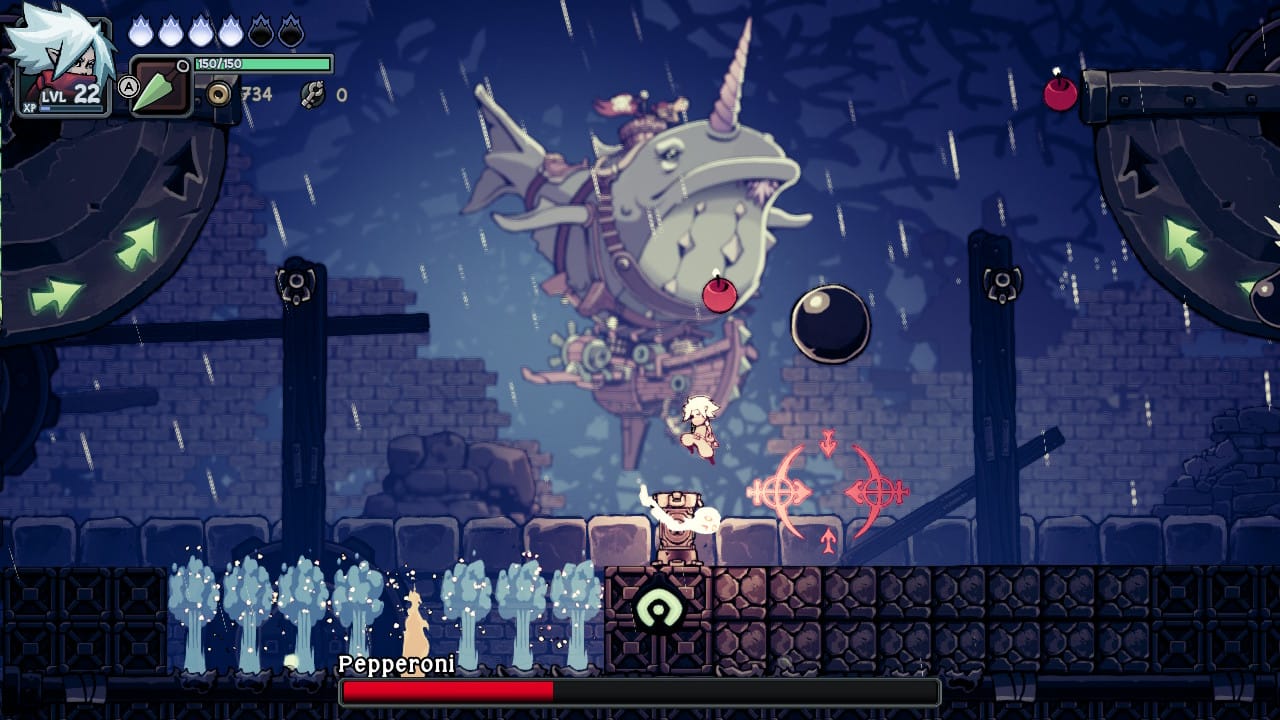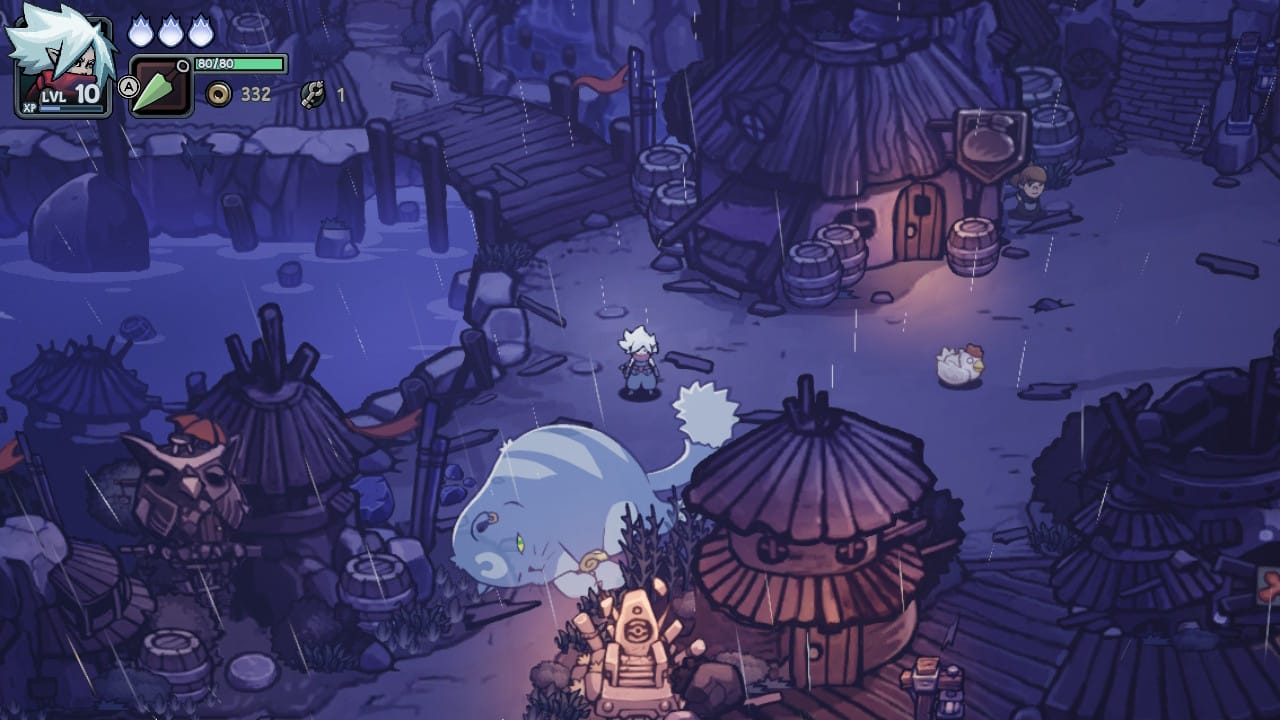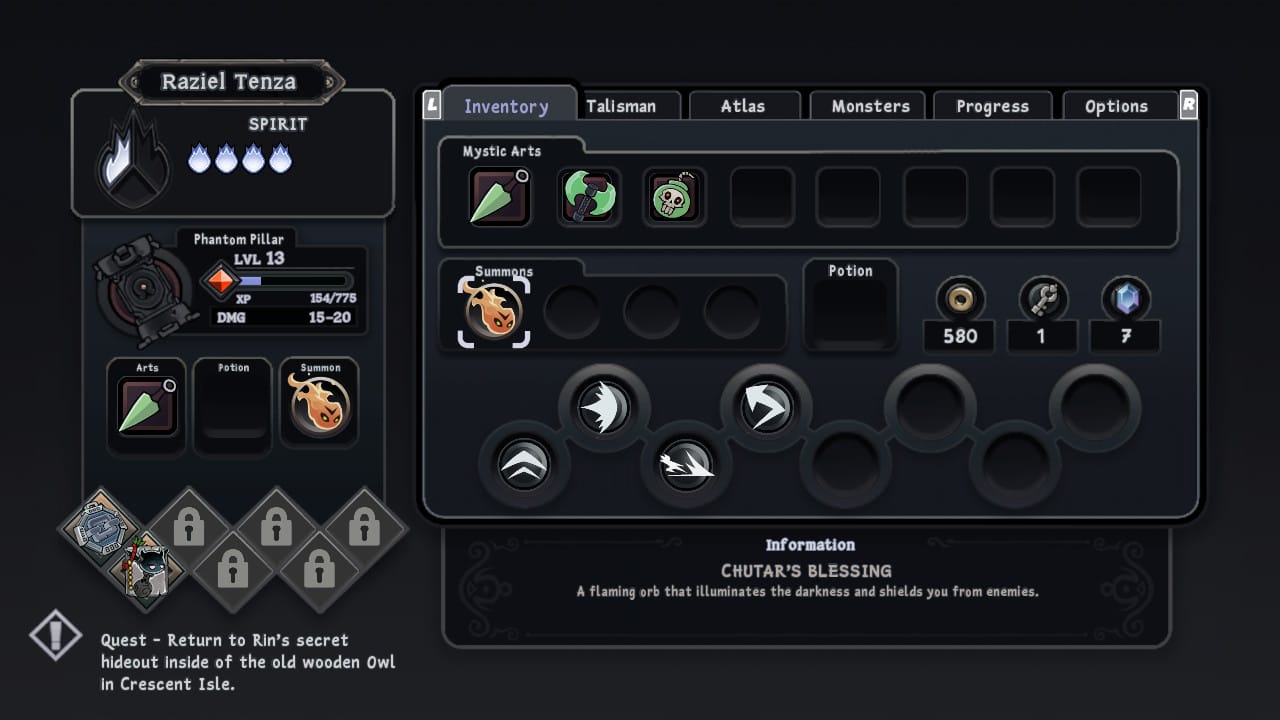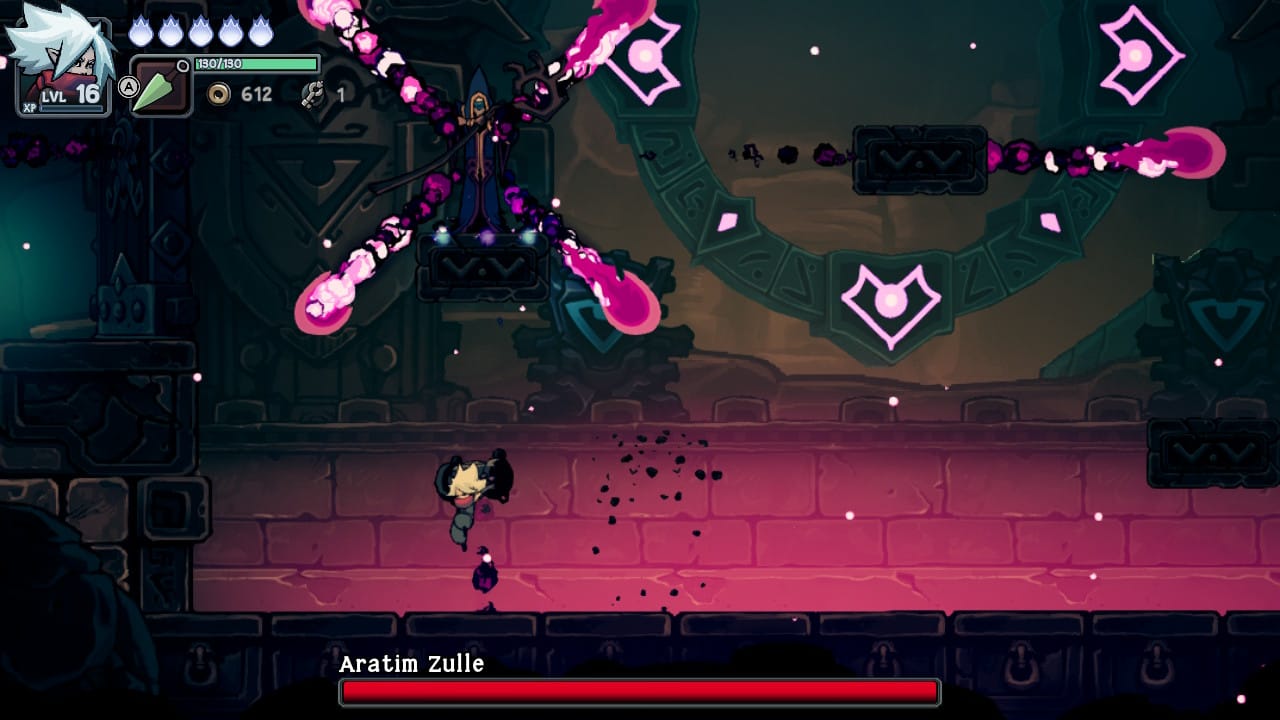There are few experiences I find engaging like a well-done Metroidvania game. The genre’s feedback loop, which indie title Twilight Monk employs to great effect, is an excellent scaffold for satisfying puzzles and progression. With some notable releases in the same space in the last few years, it’s great to see a title try some different things while delivering a fun, quality product.
Twilight Monk puts you in the shoes of a brooding young Moonken Monk named Raziel. As a descendant of the last Twilight Monk, it falls to him to take up his weapon, the Phantom Pillar, and step up when the world of Speria is threatened. The twisted, traitorous Nox, an exile of the Moonken order, has made it his mission to summon the World Eater using the three rings of the Triskelion scattered across Speria. Now, Raziel will have to journey across the world, delving through dungeons and conquering a dangerous menagerie of enemies, to get the rings for safekeeping before Nox.

In its own right, Twilight Monk‘s story has an engaging, if not unique, premise. The characters spread across the world are colorful and fun to interact with. Unfortunately, many of them feel like little more than MacGuffin fodder, used to drive the game’s action forward without contributing anything meaningful to the story. Even so, Twilight Monk has some humorous, memorable moments with a payoff that feels satisfying to close the book on. Speaking of books, it’s worth noting that Twilight Monk is based on a graphic novel series of the same name. Though I’ve not yet had the chance to read them, I’d love to see how the characters and world are presented through said catered experience.
From a gameplay perspective, Twilight Monk offers a great Metroidvania experience with responsive platforming and combat. Raziel starts with little more than a basic attack and jump. As you explore and conquer foes, you’ll unlock new attacks, helpers, and badges to modify your experience. True to the genre, you’ll gain access to new traversal techniques, like a double-jump or slide, to unlock paths through the world.

Twilight Monk features a hunting system that rewards the player for killing a set amount of each monster. When you hit milestones (for instance, 10 monsters hunted to completion), you can visit an NPC for unique rewards like permanent upgrades or extra badge slots. Including bosses, there are over 85 creatures to be hunted with several unlockable rewards along the way. It’s nothing ground-breaking, but the extra attention given to rewarding the player for engaging in combat is appreciated.
Twilight Monk’s pacing and design are well executed, challenging the player to conquer a few challenges (typically culminating with a boss battle) with their toolkit before adding another option to the mix. This keeps things feeling fresh without overwhelming the player with too much at once. This, combined with the game’s RPG mechanics and hunting system, helps maintain a sense of growth throughout the game.

To lean into the RPG mechanics, Twilight Monk combines the traditional Metroidvania traversal/gating with an overworld you can explore, not too dissimilar to a Final Fantasy game. I appreciate the way this lends to the sense of worldbuilding, giving you an alternate way to approach dungeon-delving. For the most part, I think the game’s application of an overworld is great. The decision to spawn enemies that trigger encounters feels a little less poignant, though. If you run into an enemy in the overworld, the game spawns an area full of monsters you’ll need to fight or flee from. This serves a purpose if you’re grinding XP for levels or trying to complete monster hunts, but by the end of the game, they become an annoying obstacle to duck en route to your next story point.

Visually, Twilight Monk is a beautiful, engaging game. That probably comes as no surprise with artist Trent Kaniuga, who’s contributed concept art to games like League of Legends and Diablo 3, leading the aesthetic charge. In stills, the game evokes a whimsical world of fantasy and martial prowess. In motion, the hand-drawn visuals make the game feel akin to titles like Hollow Knight and the like. When you combine that with a well-rounded soundtrack that evokes everything from epic, sweeping numbers to calm, soothing melodies, you have a wonderfully engaging audiovisual experience.
Twilight Monk
Good
Twilight Monk is a great Metroidvania that deserves some attention. Beautiful visuals and a well-rounded soundtrack will keep your eyes and ears happy for the whole 10-15 hour experience. The gameplay is both engaging and responsive, executing on tried-and-true mechanics while daring to try a few new things along the way. The story is enjoyable, too, despite all but a few of the characters feeling throwaway. Twilight Monk is a great indie game that fans of the genre are sure to enjoy.
Pros
- Clever Dungeons
- Wonderful art style
- Engaging boss battles
Cons
- Overworld combat encounters pivoted from novel to annoying as the game wore on
- The writing has fun moments but feels like it under-utilizes the vast majority of its cast.
This review is based on a retail PC copy provided by publisher.





















